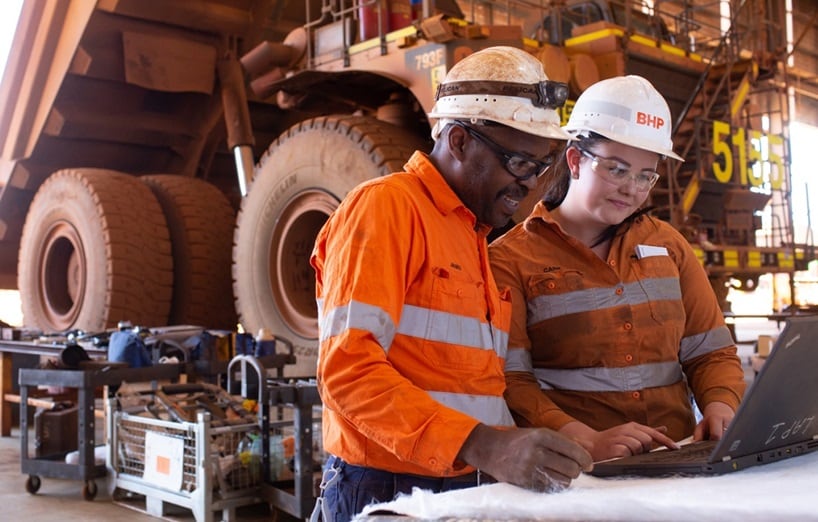We produce some of the resources that are critical to the energy transition, and are committed to reducing our greenhouse gas emissions from their production.
Copper
As the world moves towards a lower carbon future, copper is essential to creating the infrastructure needed for renewable energy sources, such as wind and solar.
Potash
Potash, specifically Muriate of Potash (MOP), is a potassium-rich salt used to improve agricultural production. Potassium is essential for plant health as it increases yields, improves water efficiency and improves pest and disease resistance.
Action we are taking to reduce our greenhouse gas emissions.
What's happening now.
What's happening now at our Western Australia iron ore operations
What's happening now at our South Australia copper operations

Careers
Thinking about your next career move? Then think big. Because while the world relies on the resources we produce, we rely on people like you. A career in BHP. Why not you?










